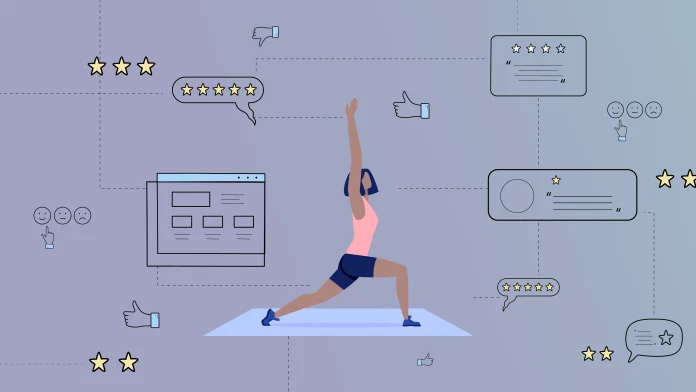Written by Susana Pontiggia (Psychologist, Specialist in Neuroscience and Human Behavioral Sciences, Consultant in Personal and Organizational Development)
Art by Valentina Taraborelli
Why Do I Want to, but Can’t? We’ve all been there. We set a goal, something we truly want to accomplish. We feel excited, picturing how amazing it will be once it’s done. That energy of “this time, I’m really doing it” surges through us. Sometimes, we even recognize that achieving this goal could make a real difference in our lives.
But when the moment comes to take action, something holds us back. Suddenly, watching just one episode of a show, doing an unnecessary cleaning spree, or endlessly scrolling through our phones seems more appealing. By the end of the day, frustration sets in because we know it was important, yet we postponed it once again.
Procrastination is the act of delaying or putting off tasks until the last minute or past their deadline. It’s not just a time management problem. Research suggests that it’s a failure in self-regulation that leads us to act irrationally. We put things off, even though we know this delay will lead to negative consequences.
Why Do People Procrastinate? Understanding the Science Behind Delays
The Brain and the Pursuit of Instant Gratification
Our brain’s reward system is wired to repeat pleasurable experiences and avoid unpleasant ones. This constant pursuit of instant gratification conflicts with long-term goal setting. While the prefrontal cortex, the most evolved part of our brain, helps us plan and make rational decisions, the limbic system, which governs our survival instincts, leans toward conserving energy and seeking immediate rewards.
If something gives us instant pleasure—watching a series, checking our phone, or eating a sugary treat—dopamine is released right away. On the other hand, long-term goals require sustained effort without immediate gratification, making them harder to initiate.
This creates an internal battle between what we know we want and what we feel like doing in the moment. Most of the time, we don’t consciously abandon our plans—we just tell ourselves that we’ll get to them later…
Sometimes, we end up doing them at the last minute, rushed and with lower quality, increasing stress and diminishing productivity. Other times, we simply let them fade into oblivion. Either way, procrastination takes a toll on our self-image.
How Stress Makes Procrastination Worse
Procrastination becomes even harder to overcome when we’re stressed. Managing stress through mindfulness, exercise, and proper rest can improve self-control and reduce the likelihood of delaying important tasks. Elevated cortisol levels impair the prefrontal cortex’s ability to exercise self-control, making us more impulsive and prone to distractions.
When we’re exhausted, frustrated, or overwhelmed, we’re more likely to procrastinate or abandon our plans. This reinforces a vicious cycle: we procrastinate to escape stress, but ultimately, it makes us feel worse.
Understanding Your Procrastination Type
1. Perfectionism-Based Procrastination
- You delay starting because you want everything to be perfect.
- Solution: “Done is better than perfect.” Start with a simple version and ask yourself, “When is it good enough?”
2. Fear of Failure Procrastination
- You avoid tasks due to fear of poor results or judgment from others.
- Solution: Focus on the process and learning rather than the outcome. Accept your work with humility, without worrying about external validation.
3. Lack of Clarity Procrastination
- You don’t know where to start, so you freeze.
- Solution: Break the task into small steps and begin with the first one. Celebrate small wins—each step moves you forward.
4. Exhaustion-Based Procrastination
- It’s not that you don’t want to do it—you just don’t have the energy.
- Solution: Evaluate your sleep, nutrition, and physical activity. These are the foundations of sustained energy. Sometimes, completing a task can actually restore motivation and provide a sense of relief.
5. Lack of Motivation Procrastination
- The task seems boring or irrelevant.
- Solution: Find a deeper meaning in the task or change how you approach it. Make it a personal challenge or set small rewards to make it more engaging.
How to Stop Procrastinating and Boost Productivity
Overcoming procrastination isn’t about having more willpower; it’s about using strategic techniques to outsmart our own brains—like setting clear priorities, leveraging small wins, and creating accountability structures to stay on track.
It’s easy to drift off course, but the key is knowing how to redirect yourself. Follow this sequence:
- Recognize when you’re getting off track.
- Pause before acting on autopilot.
- Take a deep breath to reconnect with the present.
- Choose the action that brings you closer to your goal.
Proven Strategies to Overcome Procrastination
1. Eat That Frog: The “Hardest Task First” Method
According to Brian Tracy’s “Eat That Frog” productivity method, tackling the most challenging task first thing in the day makes everything else feel easier. When we have the most energy, accomplishing a difficult task sets a positive momentum for the rest of the day. Completing a challenging task early can make us feel like we’ve already “won the day.”
2. The 2-Minute Rule
If a task takes less than two minutes, do it immediately. David Allen’s productivity rule prevents small tasks from accumulating and becoming overwhelming. Additionally, it leverages behavioral momentum, where completing small actions makes tackling larger tasks easier, reinforcing productivity and reducing mental resistance.
3. Leverage Nudges and Reminders
Transform intention into immediate action:
- If you say, “I need to respond to that email,” do it right away.
- Keep your running shoes by the door to remind yourself to exercise.
- Set visual or auditory cues to prompt action.
This habit prevents your brain from rationalizing excuses and unnecessary delays. More importantly, following through on your intentions strengthens self-trust, a key element of self-confidence.
4. The Guiding Question: “Is This Taking Me Closer to My Goal?”
Every time you get sidetracked by distractions or trivial tasks, pause and ask yourself: Is this aligned with my goals? If the answer is no, refocus your attention.
5. Challenge the Urge: “If I Follow This Impulse, Where Will It Lead Me?”
Impulses are fleeting, but decisions have long-term consequences. Before acting on a whim, ask yourself: If I keep following this path, where will it take me? This mental pause helps disrupt automatic procrastination patterns.
Conclusion: Strategy Over Willpower
Overcoming procrastination isn’t about pushing yourself harder—it’s about working smarter. Procrastination is not a personal flaw but a result of how our brains function. By using strategies like nudges, reminders, questioning impulses, and anchoring ourselves with deep breaths, we can live with greater intention and less delay.
When we stop believing the excuses our minds create—like “I deserve a break”—we can start making real progress toward our goals.






